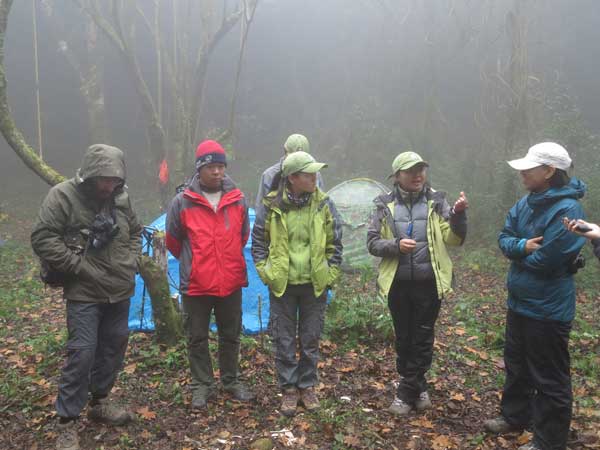Searching for a song
 |
|
Photo by Chen Liang / China Daily |
Farewell song
The rain prevented us from climbing to a nearby hilltop for our last chance to listen to the gibbons' singing. After raining throughout the night, the moist forest became truly inhospitable.
We quickened our pace and reached a park on the ancient Tea and Horse Trail paved with stone slabs by the afternoon. At a museum in the park, we were finally able to camp under a proper roof.
Yang said we had explored barely 30 km of the trail over the course of the four-day trek and the area we covered is within a county-level reserve managed by his bureau.
"The national reserve is still far from here and has strict restrictions on human activity," he says.
"But the forest here is better than most you can find in national reserves of other regions. That's why the area can be the habitat for 30 of 124 groups of western black-crested gibbons in Xinping."
We climbed to the entrance of the park to wait for the bus on our last morning in Ailaoshan.
Benjamin Rawson, an Australian biologist based in Vietnam, suddenly said he heard the gibbons' singing.
Soon I heard it too. It was three rising notes from a faraway valley. One or two minutes later, another three squeals.
And then they fell silent. Finally the black-crested gibbons had announced their presence in the forest to the outsiders, even if it was frustratingly brief.
Related:
Although few participants of the recent trek on the Ailao Mountains (Ailaoshan) managed to hear the western black-crested gibbons' duets, no one seemed to regret taking part. More...
For more Eco China, here

















